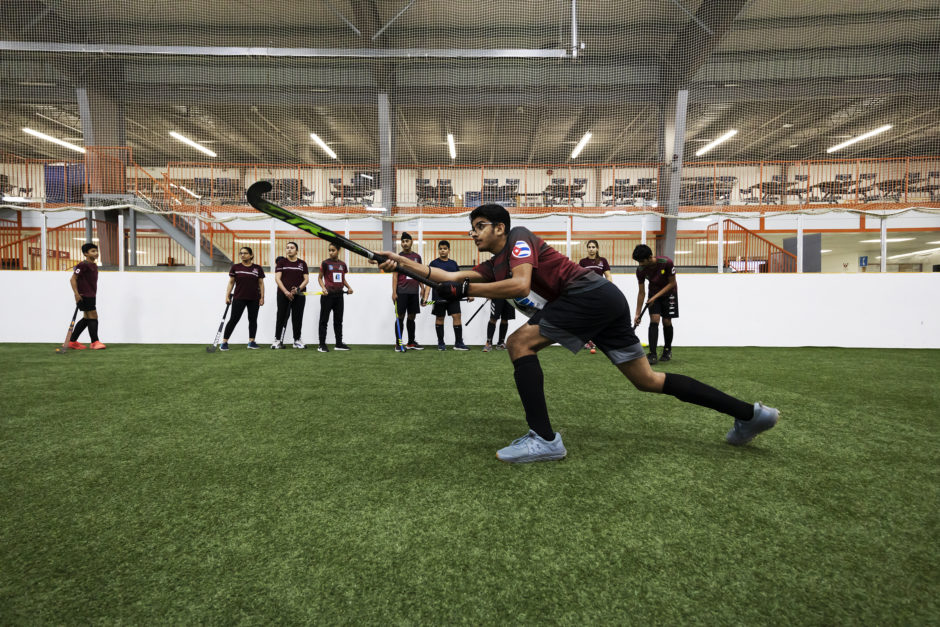October 31, 2021
Thomas Jacob and Tejinder Gill are trying to change the future of field hockey in Manitoba.
While it tends to be less popular than ice hockey in Canada, field hockey is extremely popular in South Asian communities. Coaches Jacob and Gill aim to not only grow participation within these communities but also to see the game recognized and reinstated by Sport Manitoba, the body that oversees amateur sports in the province.
Jacob is an assistant professor of internal medicine and medical education at the Winnipeg Health Sciences Centre. Gill is a financial advisor at the Royal Bank of Canada.
When not juggling their personal and professional obligations, the pair devote their energies to growing the sport.
They started up the Rovers Field Hockey Manitoba club after governance and structural challenges led to Sport Manitoba decertifying the previous provincial field hockey organization, Manitoba Field Hockey, in 2015.
At first, the coaching pair struggled to find players, with only three people signing up initially.
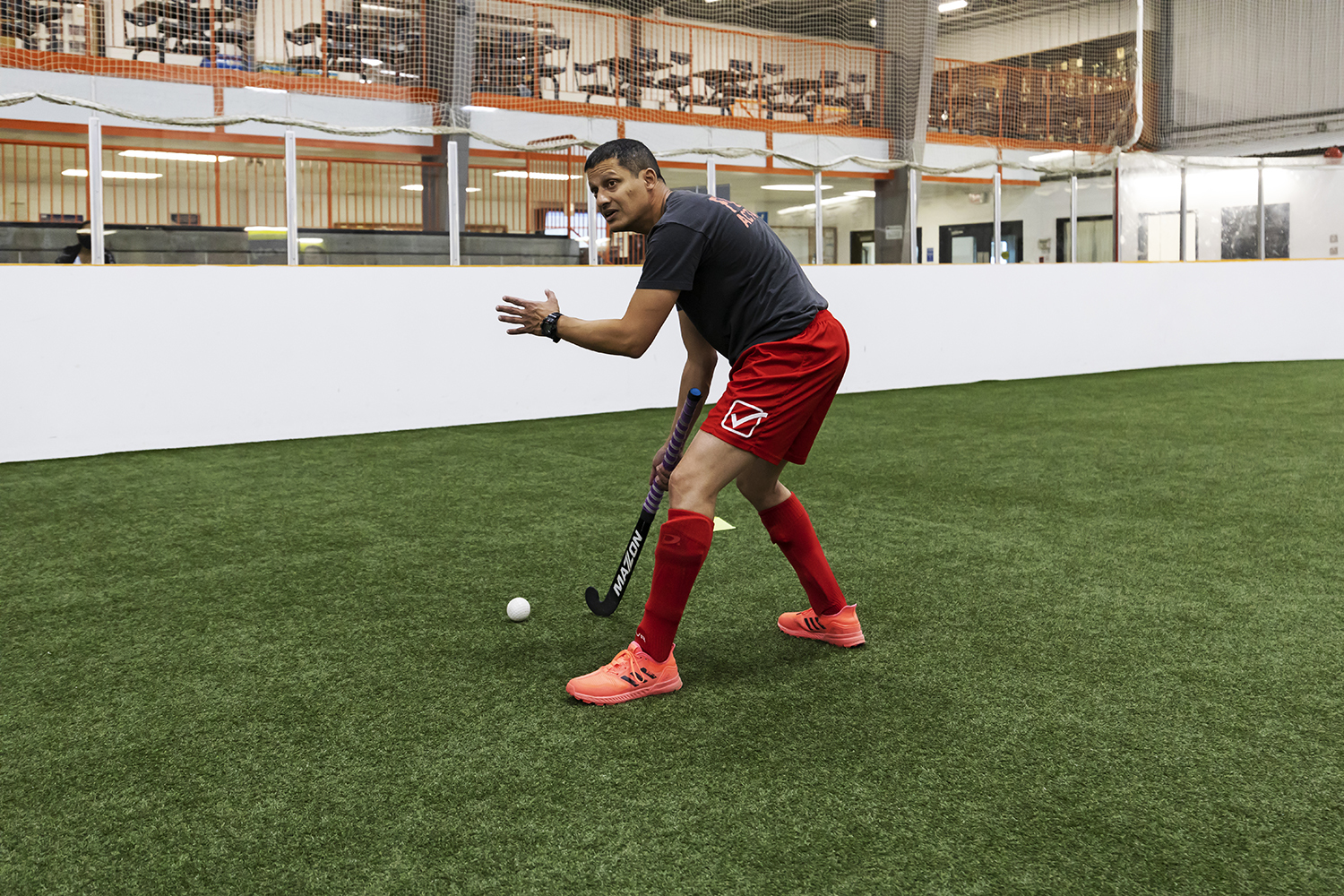
It hasn't been easy to grow the outdoor sport in one of the coldest cities in the world.
"We have to adapt during the winter months," Jacob said.
The sport is closer to soccer than hockey in the way players are positioned on the field. There are 11 per side, just like soccer, and there are forwards, midfielders, fullbacks and a goalie. The ball moves around similarly to soccer, too, except the player dribbles with a stick.
Although ice hockey does have some similarities to field hockey, according to Rupinder Sahij Pal, 14, who is a forward for the Rovers.
"Field hockey, you know, it's almost like ice hockey," Pal said.
"But you're playing on a field, and you're involved in more running and cardio."
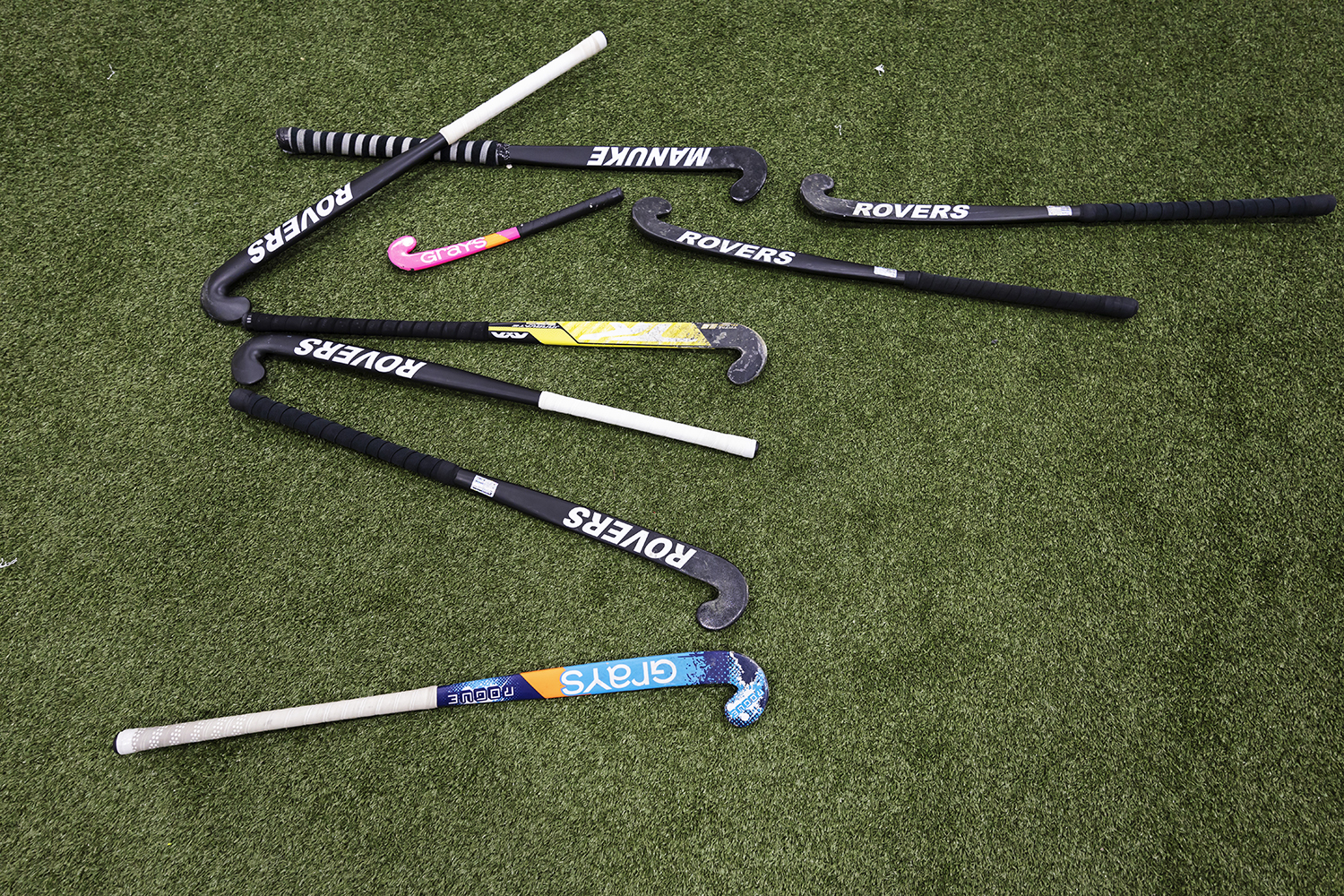
The Rovers club has grown from three to 80 members, with five teams competing in interprovincial tournament play — boys under 10, under 14, under 16 and a senior men's and a senior women's team.
"Now that we have a regular playing membership, the next step will be to convert the club to a non-profit organization and then get affiliated with Sport Manitoba," said Jacob.
Expanding the sport has been difficult because field hockey doesn't have recognized status provincially.
"That will help us to apply for sports funding grants in the future," Jacob said.
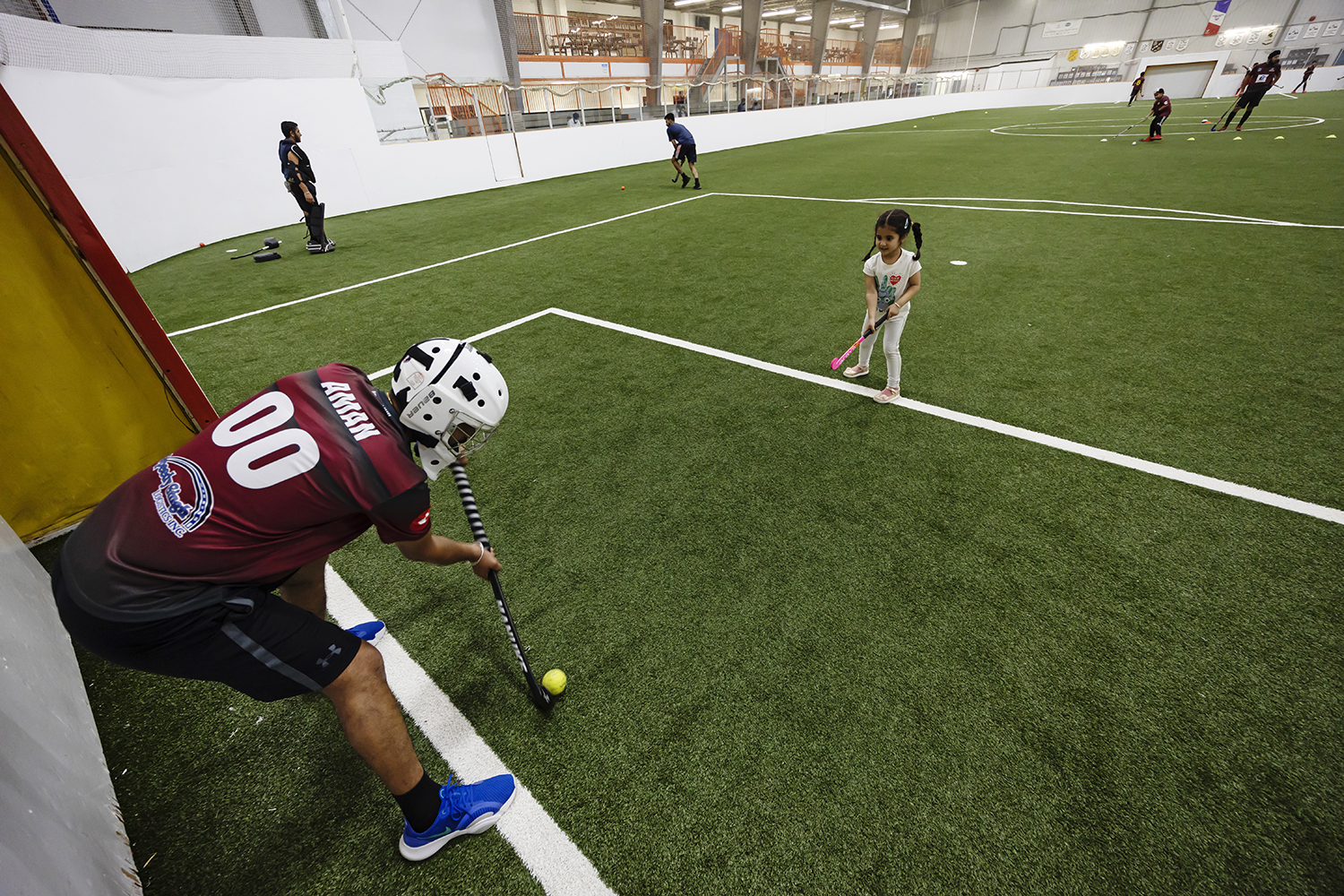
The club's teams are all in Winnipeg and play on the same field hockey pitch used for the Pan American Games, which the city hosted in 1999, except that the turf was ripped out shortly after the competition and turned into a high school football field for the Kildonan East Collegiate Reivers.
One hour of training at the Gateway Recreation Centre costs $115, according to the coaches, so they've been reaching out to private sponsors from the community for financial support.
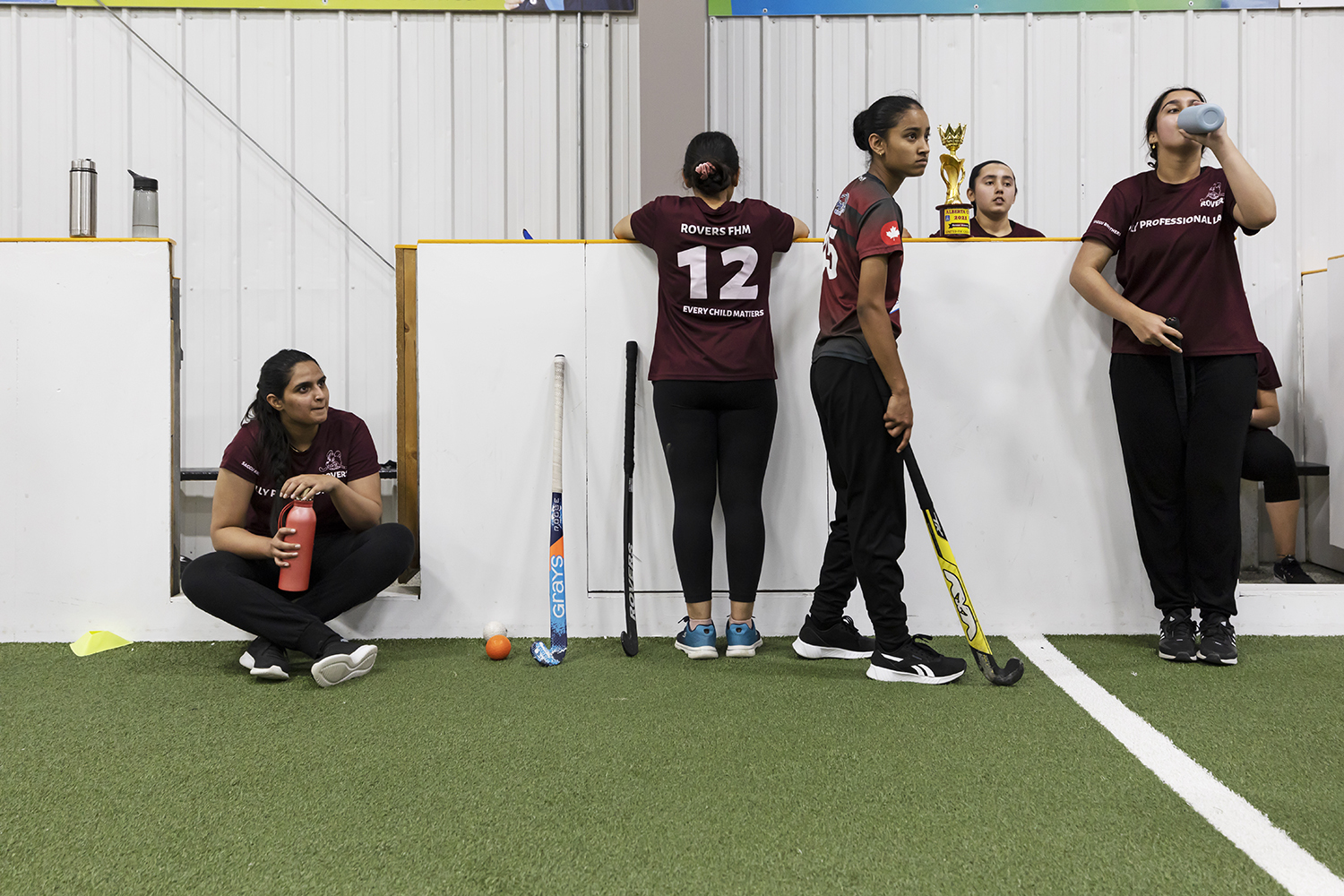
Field hockey is extremely popular among South Asian communities. India, in particular, is one of the world's most successful field hockey nations — its team has won eight Olympic gold medals and snagged a bronze at the 2020 Tokyo Games.
This recent success is inspiring youth from South Asian communities who are playing with the Rovers to chase similar Olympic dreams.
To date, Manitoba has only sent two field hockey players to the Olympics. Tara Joy Berrett played in the 1992 Barcelona Games (where Canada placed seventh), and Trevor Porritt played in both the 1984 Los Angeles Games (where the team finished in 10th place) and the 1988 Olympics in Seoul (where Canada placed 11th).

"We want more kids [in Manitoba] to live the Olympic dream," said Gill, who himself has a long family history with the sport.
Gill came to Canada in 2010 from India and moved to Manitoba from Ontario in 2011. He competed in goal for Manitoba at the provincial level between 2012 and 2016, and his wife, Amanjot Gill, played for Punjab state in India. His cousin, Jagdeep Gill, who lives in British Columbia, played for Team Canada at the 2016 Rio Olympics.
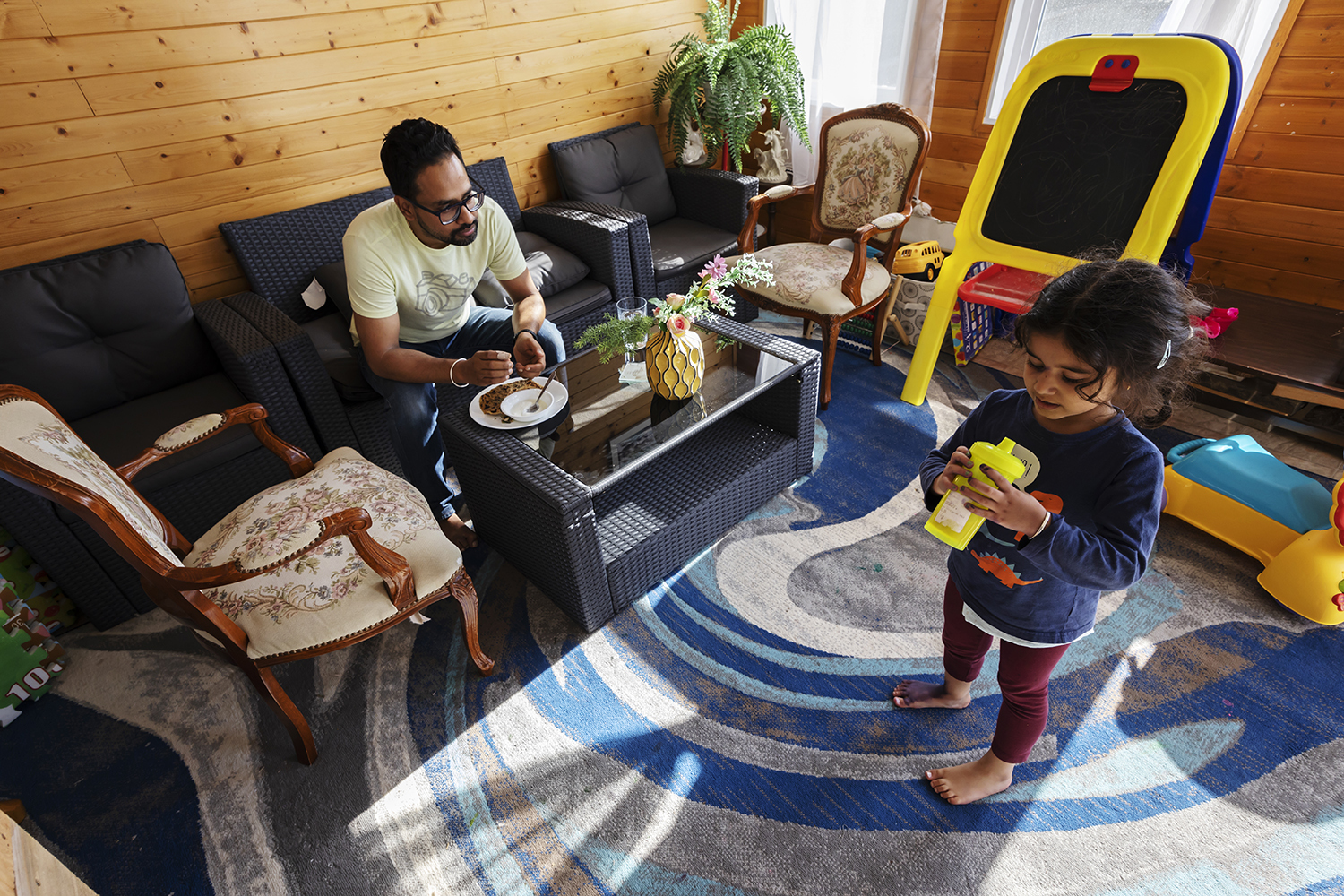
The game is extremely fast-moving and athletically challenging.
"If anyone's watched [field hockey] at ... the Tokyo Olympics, they see the game is super fast, and it just keeps getting faster every 10 years," Gill said.
Tamara Huarriz, 23, plays on the Rovers senior women's team and brings experience playing at the club level in Argentina. She wants to see the sport receive more support in provincial high school athletics programs.
Currently, the Manitoba High School Athletics Association does not recognize field hockey as a sanctioned sport and doesn't track the schools that are offering skills training or club play.

"Well, it's not a popular game here in Canada like ice hockey," Huarriz said.
"[It's] like any other sport, like basketball, you have to start first to get better."
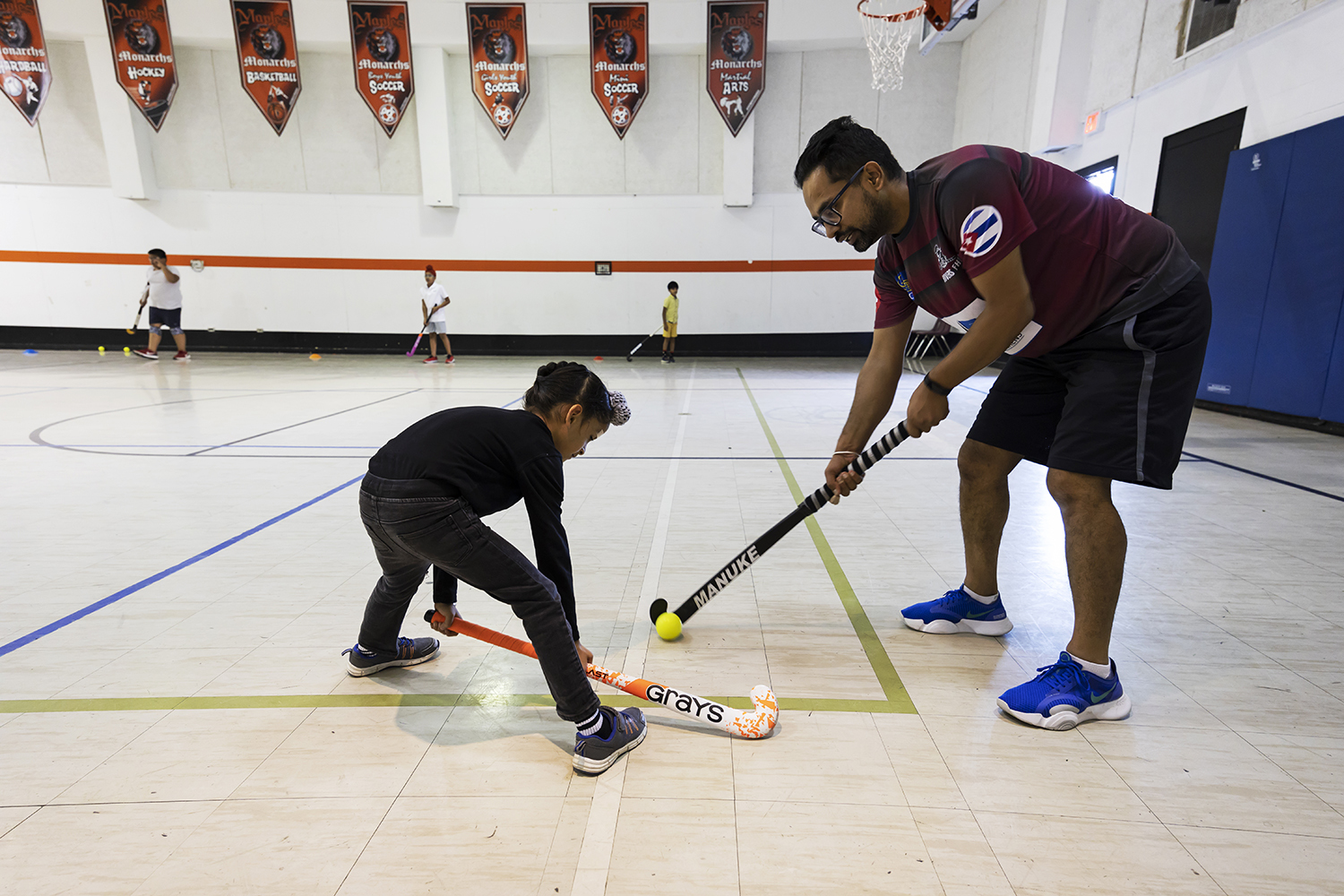
One of the shortcomings of club play is the lack of competitive game experience, say Jacob and Gill. Critical to the sport's growth in Manitoba will be recruiting more youth and, eventually, having enough participants to start a three- or four-team league so that players can get more game experience, they said.
"It's basically our philosophy to teach them the game of field hockey and give them the skills to excel and play well," Jacob said.
"We try to instill qualities of discipline, organization, [and] how to augment the training at home as they get better and get on the turf."
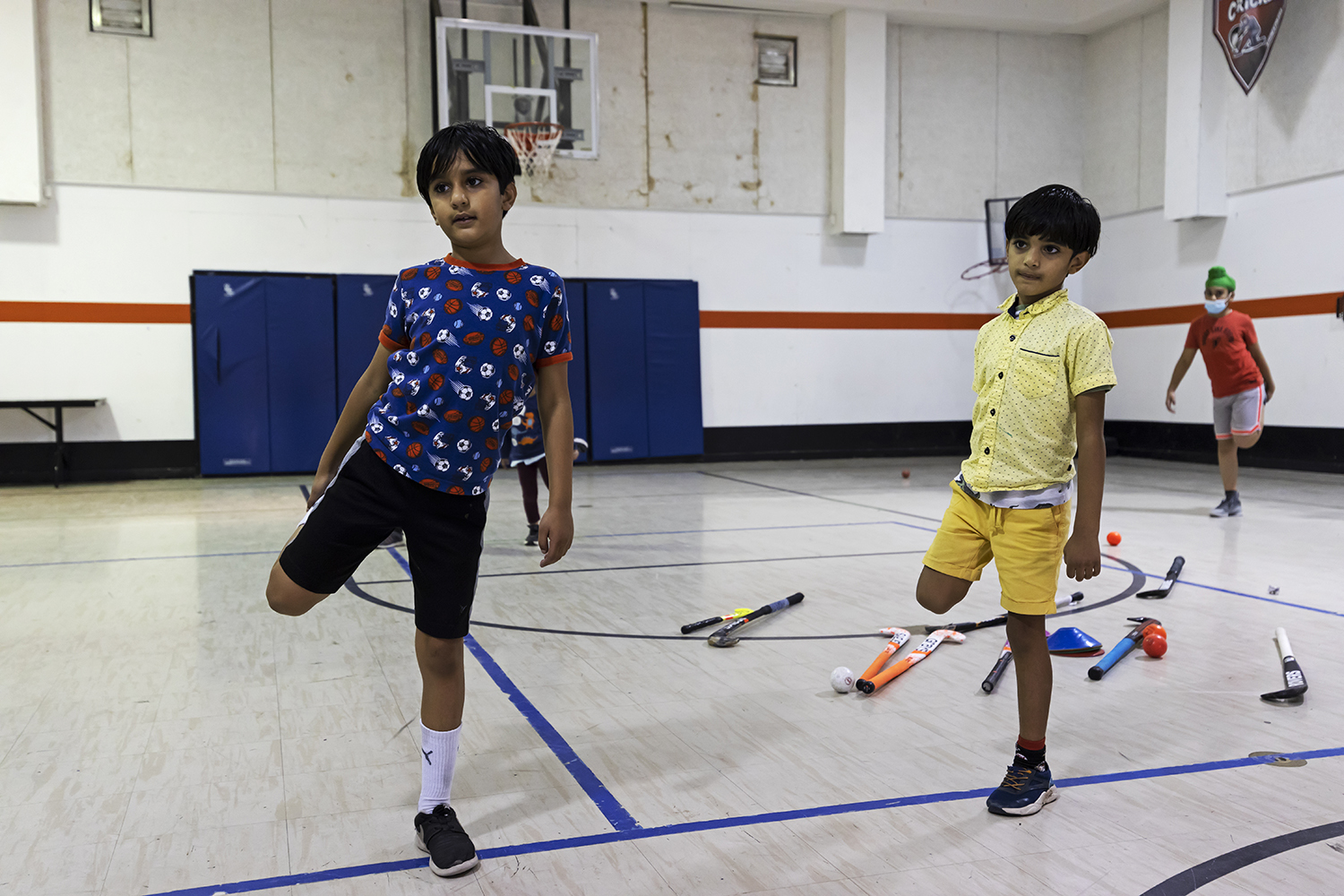
Gill and Jacob looked at many different techniques as part of their strategy to prepare their young athletes for the potential of competing at a national level.
In the beginning, the Winnipeg club had just three young members, but they all eventually represented Canada on the national under-21 team.
"Now, we have more than 80 children playing in the club," Gill said.
In the next five-to-six months, players will receive high-performance training when they participate in a national conditioning camp organized by Field Hockey Canada.
"We [are] pushing to get participation for our under-21 and under-16 teams for Canada Nationals to be held in 2022," Gill said.
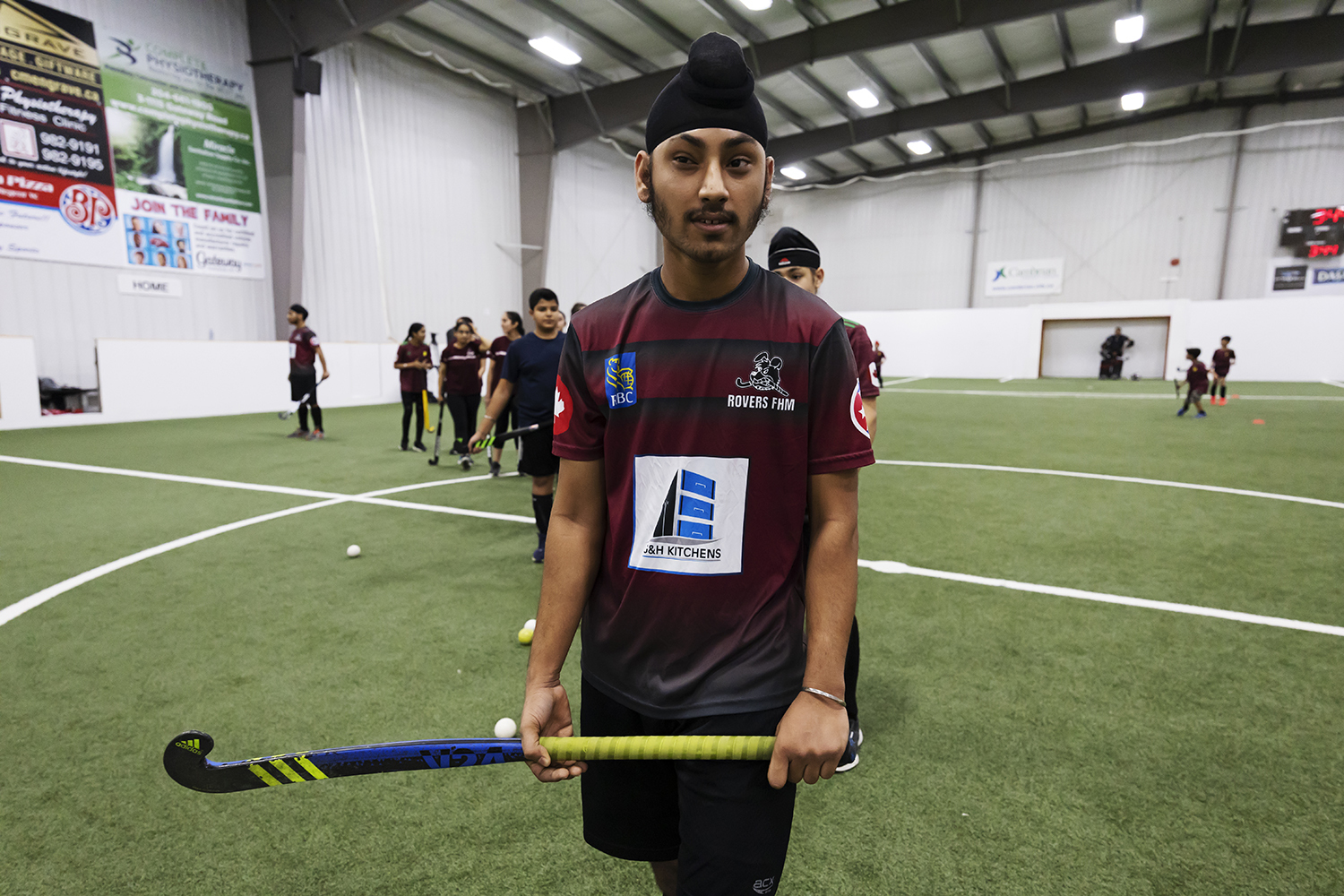
In addition to tournament play, field hockey conditioning includes advanced skills and exercise and diet regimes with the aim of training up competitive-level athletes.
"We sort of augment ourselves by going [to] tournaments, and that's where we get most of our elite-level game exposure,'' Jacob said.
"There's very much a need to create a field hockey league locally, so the players can have that match experience to develop."

The Rovers won first place at a tournament in Surrey, B.C., in 2018. Last season, four of the players who were part of the Surrey matches won gold as part of a joint Alberta and Manitoba team.
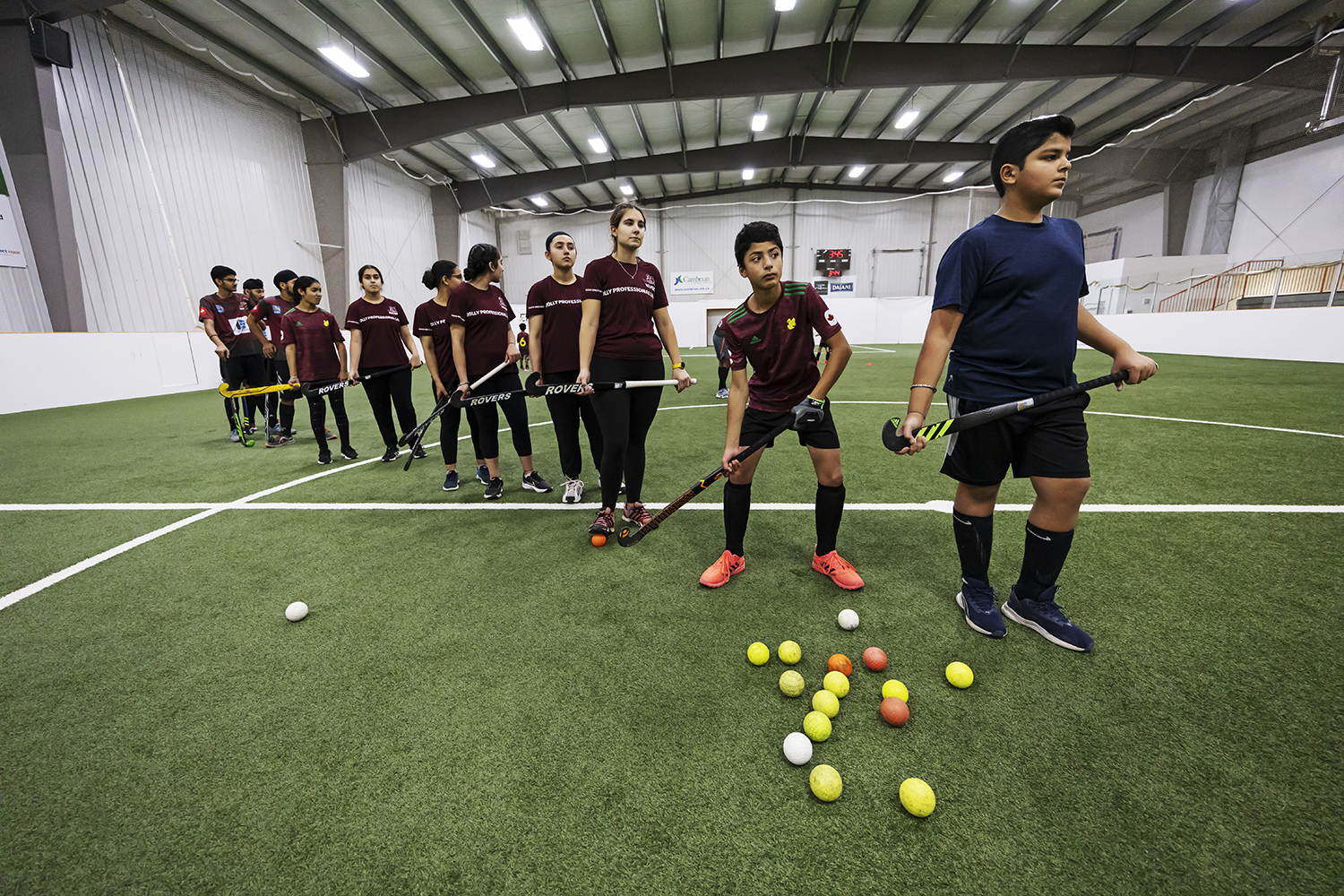
Since the pandemic began, Jacob has been sleeping only three or four hours each night because of the additional demands on him as a health care professional and has had very little time for family, he said. But his commitment to field hockey and growing the sport in Manitoba hasn't wavered.
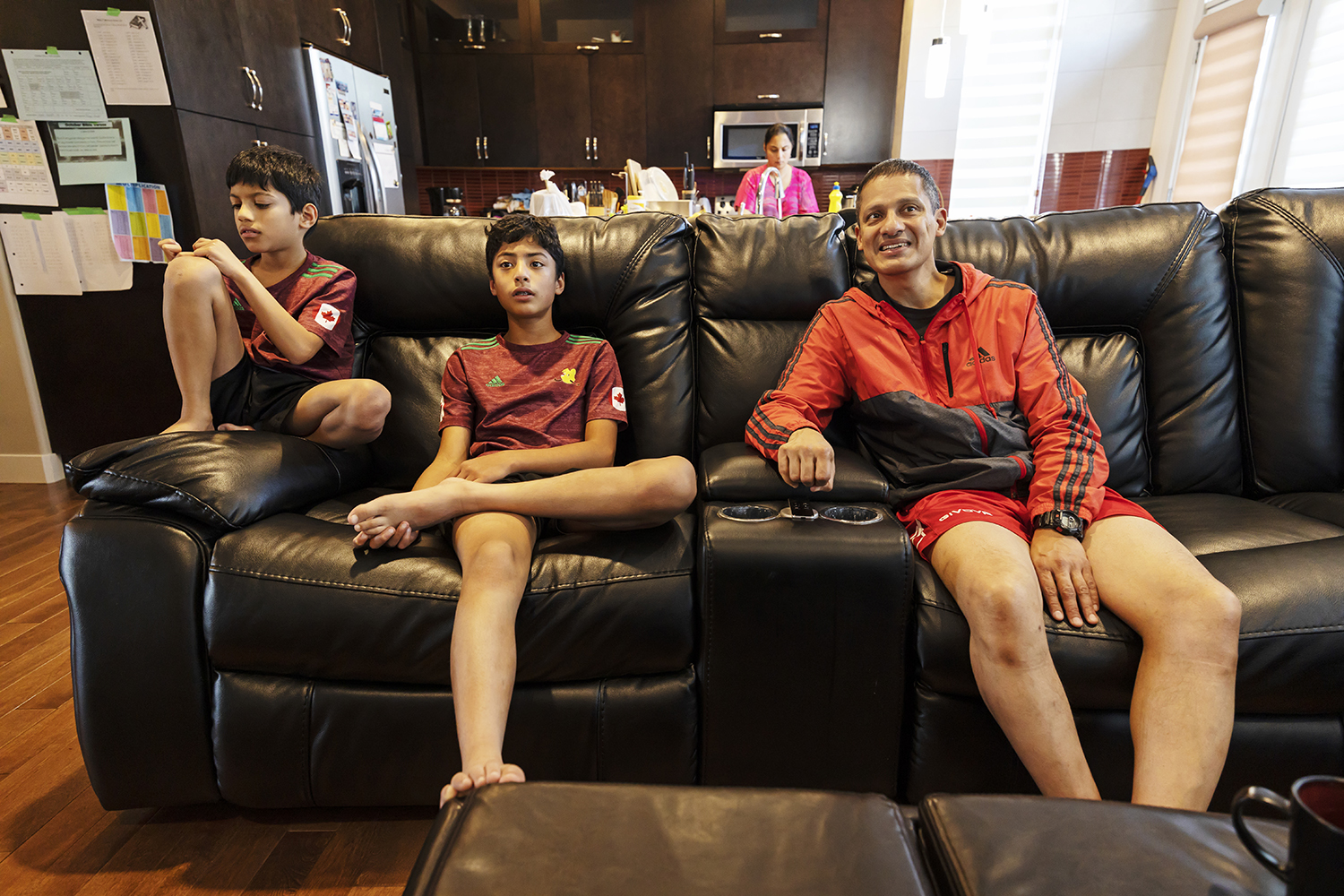
"We want to promote the sport," Jacob said, "but over and above that, I think it teaches kids a lot of good qualities."
Passing along field hockey to the next generation of players is one of the core goals for Jacob and is why he invests so much of his time coaching and mentoring young athletes.
"I learned organization, I learned discipline, I learned how to wake up early and exercise and train and how to juggle school, and [that] taught me a lot of life skills," he said.
"Hopefully, I can pass that on to the kids as well."
Thomas Jacob and Tejinder Gill say their dedication to field hockey is about more than the love of the sport. They hope their players also learn life skills, such as discipline and organization.
